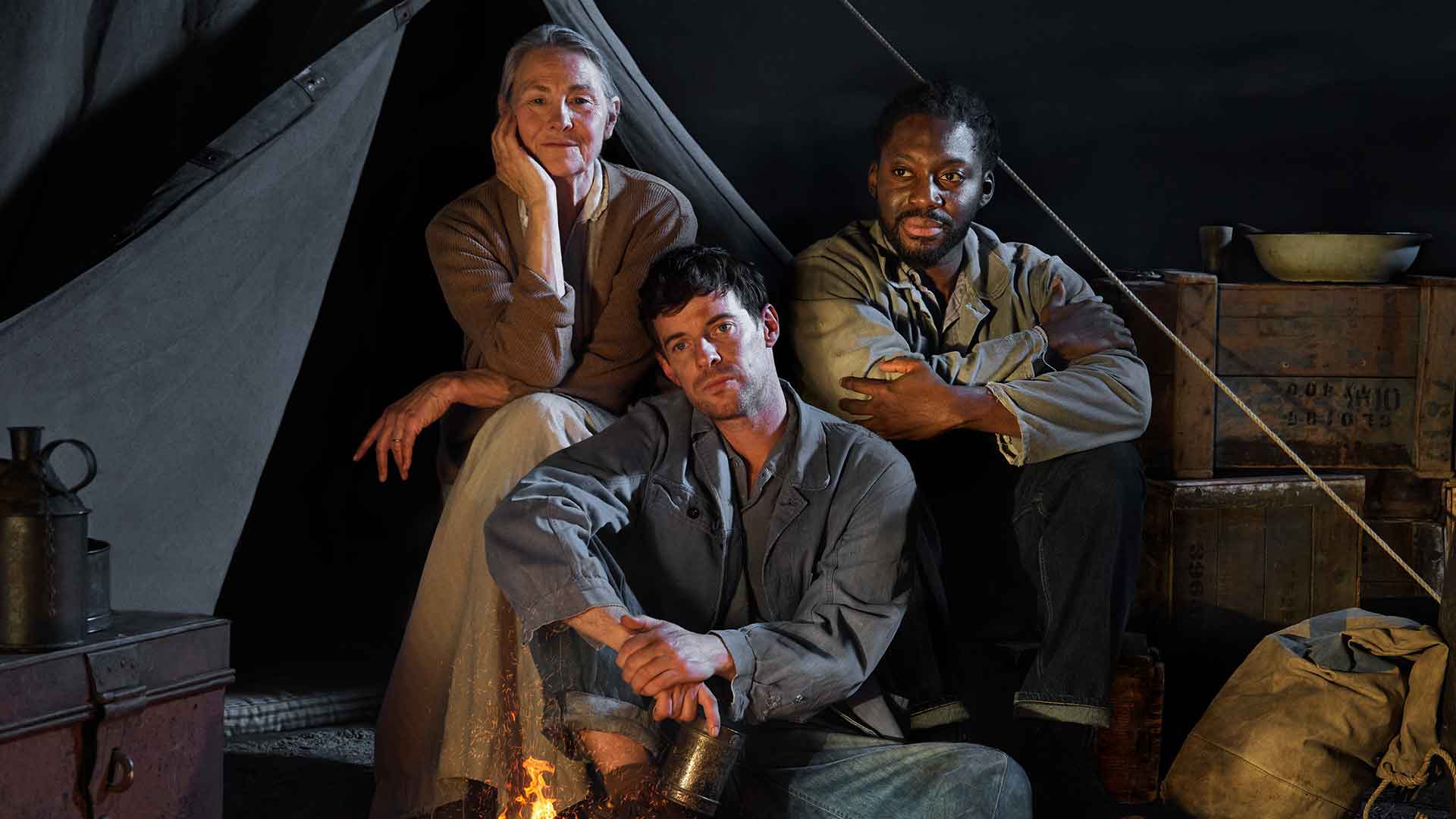You are viewing your 1 free article this month. Login to read more articles.
A painfully timely classic
A new production of The Grapes of Wrath highlights the damning contemporary relevance of Steinbeck’s novel.
The Grapes of Wrath, John Steinbeck’s Pulitzer Prize-winning masterwork of 1939, is about as acute a depiction of poverty and the toll it takes on the human spirit as it is possible to get. An account of an Oklahoma family forced to migrate to California during the Great Depression in order to find work and escape the ravages of the Dust Bowl is a classic for a reason. It is an unflinching depiction of economic hardship, hunger, deprivation and desperation that follows the story of the Joad family while also including wider observations about the struggles faced by the nation, placing the Joads within a broader political and social frame.
Frank Galati’s acclaimed adaptation, which premiered in Chicago in 1988 with a cast including Gary Sinise, is, for many, still the definitive stage version. It is the version the National Theatre is using for its new production, directed by the always-intriguing Carrie Cracknell. The role of Ma Joad, the family matriarch, will be played by renowned American actor Cherry Jones. The Tony and Emmy-award winner was most recently seen by UK viewers as media mogul Nan Pierce in "Succession". Jones is joined in the cast of the National Theatre production by UK stage stalwart Greg Hicks as Pa Joad and "Penny Dreadful" star Harry Treadaway as Tom Joad.
With its starry cast, it has summer hit written all over it. And it may well deliver on that front. Yet it is also a triumph of timing, as a portrait of the devastating impact of extreme hardship, opening after 14 years of Tory government have seen public services shredded and food-bank usage rocket. According to the Child Poverty Action Group, 4.3 million children are growing up in poverty in the UK. Though written more than 80 years ago, Steinbeck’s novel still feels desperately relevant, and it is easy to see why the National has chosen to stage it now. Arguably, it would have even more impact had they staged it earlier in this government’s calamitous run.
The last high-profile UK revival was Abbey Wright’s staging that opened at the Nuffield Theatre, Southampton in 2017. (The Nuffield permanently closed in July 2020, a casualty of the pandemic.) It was also based on Galati’s adaption, as was the 2009 production at Chichester Festival Theatre.
Though written more than 80 years ago, Steinbeck’s novel still feels desperately relevant, and it is easy to see why the National has chosen to stage it now.
Perhaps because of its heft, The Grapes of Wrath is not staged as often as Steinbeck’s novella Of Mice and Men, a regular fixture on school curriculums. In terms of scale, it presents less of a challenge. Iqbal Khan’s 2023 production for Birmingham Repertory Theatre was the most recent of multiple productions that have graced UK stages over the years. Khan’s production, in casting William Young as the volatile Lennie and other actors with lived experience of disability, took steps to address some of the of-their-time attitudes present in Steinbeck’s novella. It is, however, hard to escape the sense that Of Mice and Men’s regular presence on UK stages stems from its presence on GCSE syllabi as much as from its ability to speak to audiences today.
The programming of The Grapes of Wrath, a rich, dense text, necessitating a far larger cast, feels more pointed and political. Crucially, it is also a novel of migration, specifically economic migration. When the prevailing attitude seems to be that only certain forms of migration—people fleeing war, persecution, the threat of arrest or torture—are legitimate (and even then, we do not exactly lay out the welcome wagon), a reminder that immense hardship, hunger and the inability to find work have always forced people from their homes, that people facing deprivation and potential starvation have no choice but to move, feels necessary.
It is telling that innovative Danish theatre company fix+foxy, creators of last year’s hit Edinburgh fringe show "Dark Noon", used The Grapes of Wrath as the basis for its recent show. "The Berries of Wrath", which premiered in Copenhagen in May, is an exploration of the lives of migrant workers from Morocco who travel to Spain to pick strawberries. The show’s co-director Tue Biering says that Steinbeck’s novel very accurately reflects the conditions these workers face today: low wages and cramped accommodation, at the mercy of exploitative employers, all to ensure more comfortably-off Europeans have fresh fruit on their supermarket shelves. Steinbeck’s novel is used as a lens through which to view the socioeconomic inequality in Europe today; in this production a group of Danish children stand in for the migrant workers who are unable to represent themselves in the piece.
I think it is safe to say that the National Theatre’s production will not be quite so radical. But it will still demonstrate how Steinbeck’s compassionate depiction of the ravages of poverty, and the societal conditions that create it, has a lot to say about the place we find ourselves in today.




















